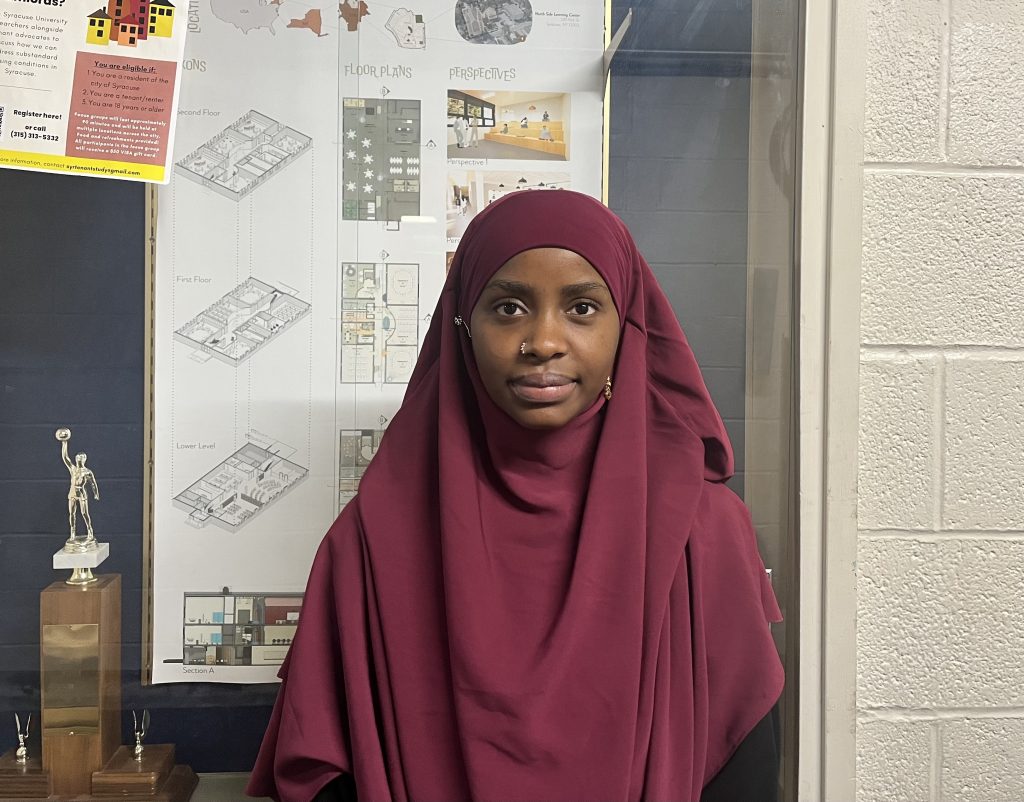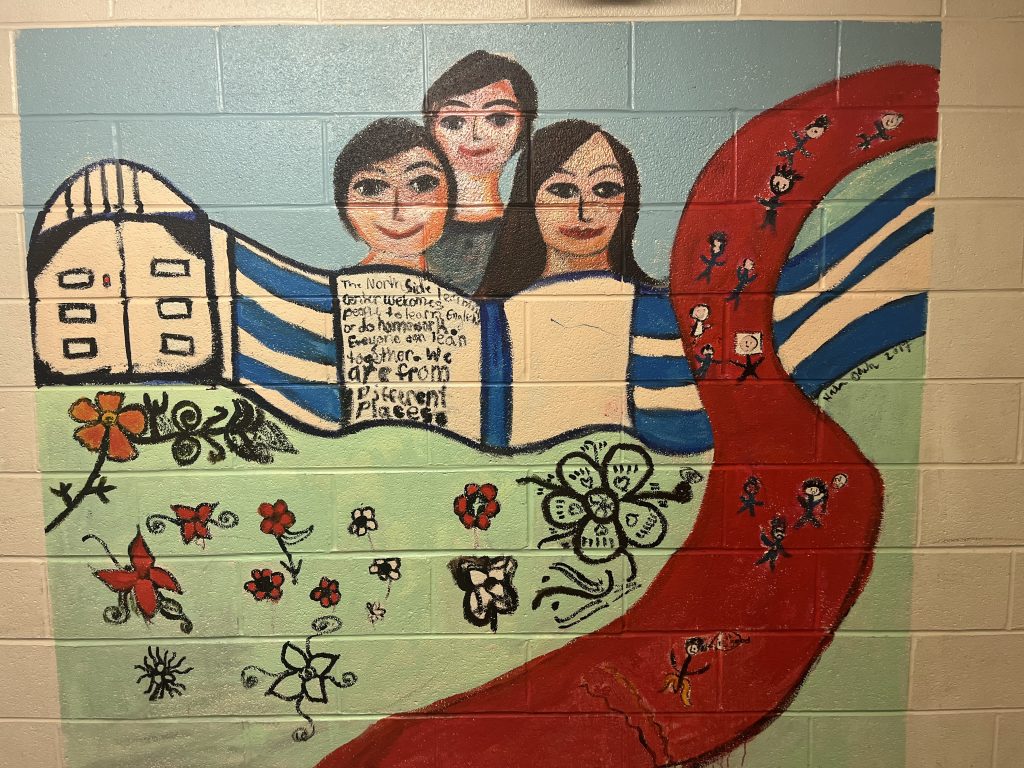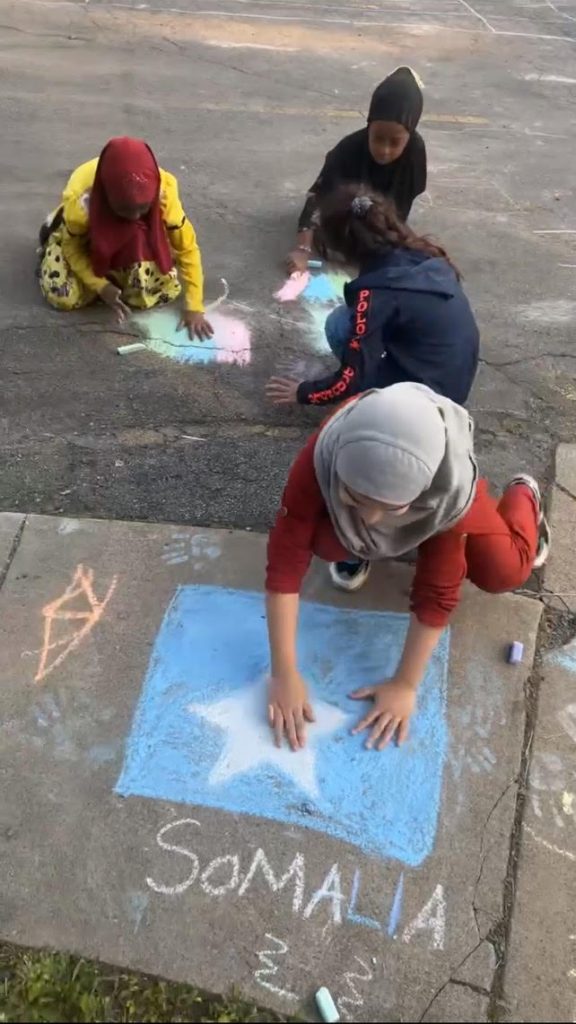Advocates say pro-refugee stance creates a thriving Syracuse community
Advocates say Syracuse thrives from pro-refugee stance
Despite immigration being a topic contested nationally, some advocates argue assisting refugees fosters a spirit of mutual support.

Syracuse has a reputation for welcoming refugees and giving them a new home with the opportunity to become active community members.
According to CNY Vitals, more than 7,000 refugees have come to Syracuse in the past decade and the city is expected to take in about 1,000 more each year, making it one of the highest intake cities in the United States. This influx created a need for nonprofits that provide resettlement, language and job training services.
The North Side Learning Center of Syracuse aids refugee children with English language instruction, academic enrichment and tutoring. All of these services are free for the people they serve.
North Side Learning Center executive director Mark Cass said he appreciates being able to help families on their journey as new Americans every day.
“What’s most fulfilling for us here is that people bring great gifts and our work is very very positive,” Cass said. “In most cases, helping people learn is a really fun and fulfilling activity.”

This embrace runs counter to the political rhetoric about immigration, especially in part to the Trump administration’s substantial anti-immigration stance.
A March 2023 poll by The Associated Press-NORC Center for Public Affairs Research showed that about 4 in 10 U.S. adults say the level of immigration and asylum-seekers should be lowered.
But in Cass’s experience, Syracuse has become exemplary for assimilating refugees and recognizing what a positive asset they can be to the community.
“Certainly on the public side — elected officials, the mayor in particular — you get already a countering to those questions of hostility,” Cass said. “But we also have great examples of how new Americans are contributing in so many ways so that’s a pretty easy attitude to counter.”
Cass sees firsthand the many refugees that come back to serve the same community that served them.
“Many of our folks, sometimes organized by us or also just generally speaking, are serving the broader community in many ways,” Cass said. “It isn’t just new Americans taking care of new Americans, but new Americans contributing to serving Syracuse and Central New York in a whole lot of ways.”
Lamis Abdelaaty, associate professor and undergraduate studies director of SU’s political science program, said the perception that refugees and immigrants overly depend on government aid makes many people reluctant to welcome them despite research confirming the economic benefit they bring.
“There’s so much research that shows that asylum seekers and refugees — the vast majority of them — really do not want to be dependent on assistance or aid,” Abdelaaty said.
“Any amount that’s spent on them initially — by authorities or by [non-governmental organizations] to help them get set up — they pay back in multiples in terms of jobs that they create, tax revenue that they generate, and so on.”
According to the American Immigration Council, refugees in the United States generated $93.6 billion in household income, contributing $25 billion in taxes alone in 2019.
Abdelaaty said she has observed refugees thrive in their new environment with the help of organizations like Refugee and Immigrant Self-Empowerment (RISE) and other nonprofits.
“They do quite an amazing job of welcoming individuals, finding them affordable places to live, turning on the lights for them initially, helping them with language acquisition and really getting them set up for success so that they can then support themselves and become a vibrant part of our community,” Abdelaaty said.
Khadra Mohammed, a George Fowler High School senior and Public Service Leadership Academy member, started going to the North Side Learning Center in middle school after she and her family came from Somalia as refugees in 2014.
Initially a more timid student, Khadra said she was able to blossom due to the support from her teachers at the learning center.
“We did a play and I met a lot of new people,” Mohammed said. “The play helped me open up to people and communicate more. I loved that experience and I’ll always remember it. The teachers were very understanding, they helped us and made it look fun being a teacher.”
Mohammed is now a teacher at the center, helping younger students just like her with homework after school.
“Smiling every day, I come back from school and I come here at 5 and then I see all these smiling faces and they make my day,” she said.
As she approaches the end of her high school career, Mohammed wants to study teaching in college so she can continue to make an impact on students.

Nicole Watts, founder and CEO of Hopeprint, an equitable neighborhood development with a mission to facilitate sustainable development of under-resourced people/communities, has seen the refugees and new Americans in their community make a positive impact and enact change.
“Over the nearly 15 years I have had the opportunity to have friends from our resettled refugee (and) New American communities, I have seen them repeatedly transform our communities with their entrepreneurial spirit, cultural wealth, and other passions they bring to our City,” Watts said.
Hopeprint is now shifting its energy to facilitating sustainable development in Syracuse’s West Pond microneighborhood through operational support, capacity building, advocacy, and resource matchmaking.
Watts said she expects many refugees to take the initiative and go into this project head-on.
“We hope this role will facilitate dozens of resettled refugees (and) New Americans, as well as all of our neighbors, to continue rising up to take leadership and ownership of reinvesting in our community to one where all can prosper in place.”
